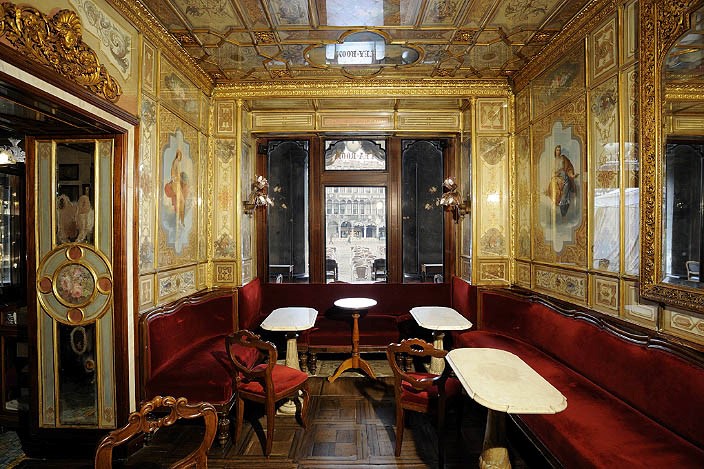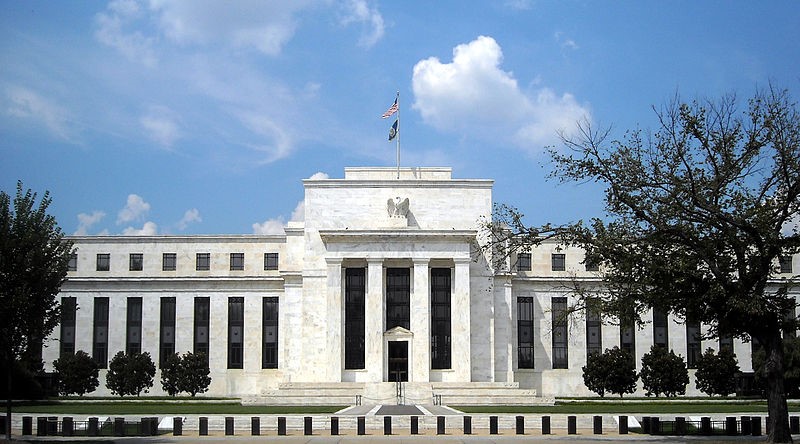(Image by Beautytreff from Pixabay)
Welcome to Caffè Florian. The oldest café in Italy in continuous operation.
Next year, I plan to visit Italy. I will go to Venice and look up an old friend. And I will sit in Caffè Florian and imagine the conversations that have bounced around its walls since 1720.

Source: Wikimedia Commons
Venice, once a maritime republic and sovereign state, was the richest city in the world. By the 1700s, it was in terminal decline, and the republic fell in 1796.
Yet the city, its treasures, and Caffè Florian have survived all that time has thrown at it.
It quite nearly had to close in 2020.
The brand had a turnover of more than USD $10 million in 2019.
Sales declined 80% during the pandemic. The business was eligible for just $190,000 of government funding.
But reopen and survive it did.
Today, the business has two other locations: Taipei and Taichung, both in Taiwan.
Now, here’s what’s interesting. Floriano Francesconi opened this historic café at a time of crisis. The Republic of Venice had just fought a war with the Ottoman Empire (1714-1718) and lost their golden possession of the Peloponnese peninsula in Greece — a land area almost 10% the size of New Zealand. It was downhill from here.
Yes, it must have been a gloomy time to start a new business.
A case study of enduring wealth
Well, the story of the world’s oldest café resonates with me, because I see echoes of its success and survival in my business.
We manage global portfolios for Wholesale Investors. Typically, these are ‘high net-worth investors’ or people with experience of market instruments like shares.
Over the years, those who seem to accumulate the most wealth are those willing to invest in the darkest days.
Let me give you an example. Some months ago, the news for stock market investors started to turn very bleak.

The Federal Reserve building, Foggy Bottom, Washington D.C. Source Wikimedia Commons
The Fed was saying that interest rates would have to be ‘higher for longer’. The US 10 Year Treasury Rate hit 5%. The highest since the Global Financial Crisis. Dangerous wars with the possibility of wider escalation raged in Ukraine and then Gaza.
This situation provided a case study on why some people have many times more wealth than others.
Wealthier clients started to provide more money for deployment during these dark days. While others said they would not invest until they saw the market improve. Some even pondered if it was time to reduce market exposure altogether.
Of course, since November, those who invested have been rewarded. And most of them know, often from years in business, that it is always darkest before dawn.
Now, there is another consideration that needs to be factored: survivorship bias.
For those who do take oversized risk, it can go either way. We see (and celebrate) those who succeed from their risk-taking. We do not see those who have lost their money and now don’t have much to invest.
Yet I am an optimist. When you have conviction in the risks you are taking and manage those risks in an educated and careful way — with your eyes wide open — you will succeed.
Even if you fail, what you learn from that will position you more strongly to bounce back and rise again.
30,000 days of investing
Chris Davis, a renowned investor and former accountant, talks about the idea that most of us have 30,000 productive days across our lives.
Caffè Florian has so far seen over 110,000 days.
Davis believes that your life will see three key phases of 10,000 days…
Phase 1: Exploration Phase
The first 10,000 will take you to about the age of 30 or so. These days are about ‘going wide, experimenting, trying new things, new places, new professions, new people, new towns.’
This is the time when on average most people have decided what they want to do, where they want to be, and who they want to be with.
Phase 2: Settled Phase
Chris says the next stage is not about going wide; it’s about going deep.
You have another 10,000 days to execute ‘the depth of relationships that comes through marriage, through family, through your vocation, your profession, your colleagues.’
He sees this as the time when you create the monuments of your life: your family, your kids, your home, your profession.
Then, around the age of 56, things change again. Your kids are beginning to leave home. Your profession is fairly settled.
Phase 3: New Exploration
A lot of people actually end up happier in their 50s through to their 80s. This is likely because it’s a time when many can ‘go wide again’. They have more perspective on life and more freedom.
But there is also turmoil. You might face an empty nest. Friends have moved away — or in the later stages, passed on. The social life you have previously had structured for you through family and work can change. Health considerations rise to the fore.
Investing becomes more important than ever. Not only in securing financial independence and your legacy, but also investing in new relationships, as well as maintaining and invigorating old ones.
It is my observation that in each of the stages, wisely taken risks pay off.
The market tends to run in 2,500-day cycles from gloom to boom — around seven years of famine to feast. So, within each life phase, there can be up to several good chances to capture some serious opportunity.
There will be many readers who are older and wiser than me. I am only in the ‘settled phase’. But if there is one key area of regret: it is not taking greater risks with opportunities when they were available. Though I’m content with my batting average overall.
It is always useful to remember that opportunities don’t shout. They whisper.
And a good opportunity in dark times, beautifully executed, can stand the test of time.
We want to hear from you
I hope that you’ve enjoyed reading our articles as much as we’ve enjoyed writing them:
- Your prosperity is our focus — which is why we are always working hard to uncover new opportunities beyond the radar for you.
By the way, I have a small favour to ask:
- Would you like to write a review of our work here at Wealth Morning?
- Do you want to let us know if our stories have inspired you in a positive way?
- Do you want to let us know if our stories have helped you become a more successful investor?
We truly value your feedback It encourages us. It helps us to do better. It helps us to reach further:
- So, if you’d like to leave us a review, it’s quick and easy. It will only take two minutes of your time.
- Thank you so much in advance for your kindness and generosity. Your readership keeps us going!
Regards,
Simon Angelo
Editor, Wealth Morning
(This article is the author’s personal opinion and commentary. It is general in nature and should not be construed as any financial or investment advice.)





Simon is the Chief Executive Officer and Publisher at Wealth Morning. He has been investing in the markets since he was 17. He recently spent a couple of years working in the hedge-fund industry in Europe. Before this, he owned an award-winning professional-services business and online-learning company in Auckland for 20 years. He has completed the Certificate in Discretionary Investment Management from the Personal Finance Society (UK), has written a bestselling book, and manages global share portfolios.